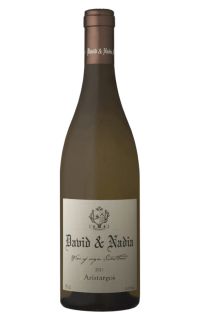All pictures shown are for illustration purpose only. Actual label may vary due to changes between vintages.
Product Notes
David & Nadia Aristargos is a premium wine producer located in the idyllic Swartland region of South Africa. The husband and wife team, David and Nadia Sadie, are renowned for their dedication to creating exceptional wines that showcase the true character of the region's terroir. They source their grapes from organic and sustainably farmed vineyards, with a particular focus on old vines. Their winemaking philosophy is all about minimal intervention, allowing the natural beauty and complexity of the grapes to shine through. Their range includes Chenin Blanc, Pinotage, Grenache, Syrah, and more, with a focus on crafting wines that are both terroir-driven and vibrant. With a great passion for the land and winemaking, David & Nadia Aristargos is a must-visit for any wine enthusiast visiting South Africa.
Tasting Notes
A focused nose leads into grassy herbal notes before Thai green papaya salad, mango and lime leaf, white peaches, and a touch of pineapple emerges with air. A more understated style in 2019 with clear aging potential. Predominantly Chenin Blanc on granitic soils with an old vine focus. Grenache Blanc from the Kasteelberg adds a bit of breadth and intensity derived from schist soils, while the Verdelho, a new addition, counteracts it with freshness and saltiness to add another level of complexity. A classy expression of Aristargos

















